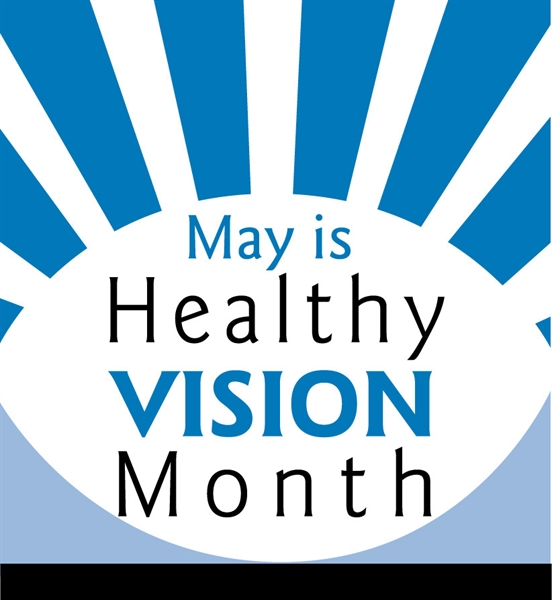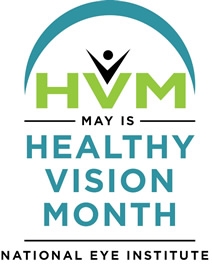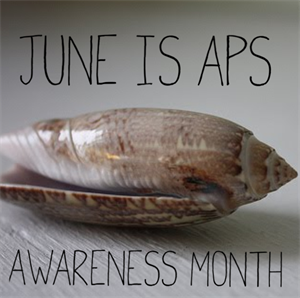Healthy Vision Month on May, 2024: Where can I find a list of appreciation and awareness months?
May, 2024 is Healthy Vision Month 2024.
As an Amazon Associate I earn from qualifying purchases.

Full List of Awareness Dates
January
1-31 National Blood Donor Month
1-31 Cervical Cancer Awareness Month
1-31 Poison Prevention Awareness Month
1-31 Financial Wellness Month
4-11 Women's Self-Empowerment Week
7-11 National Thank Your Customers Week
17 Customer Service Day
21-27 Hunt For Happiness Week
25-31 NYC Restaurant Week
29 Chinese New Year
February
1-30 Marfan Syndrome Awareness Month
1-30 National Parent Leadership Month
1-30 Plant The Seeds Of Greatness Month
1-30 Library Lovers Month
1-30 Youth Leadership Month
1-30 National Weddings Month
1-30 Time Management Month
1-30 American Hear Month
1-30 Black History Month
1-7 Women's Heart Health Week
6 Ash Wednesday
6-13 National Patient Recognition Week
11-18 Heart Failure Awareness Week
12 Abraham Lincoln Birthday
12 NAACP Founded
14 Valentines Day
15 Susan B. Anthony Day
17 George Washingtons Birthday
18 Presidents' Day
March
1-30 American Red Cross Month
1-30 National Parent Leadership Month
1-30 Honor Society Awareness Month
1-30 Irish-American Heritage Month
1-30 National Athletic Training Month
1-30 National Caffeine Awareness Month
1-30 National Chronic Fatigue Syndrome Month
1-30 National Clean Up Your IRS Act Month
1-30 National Collision Awareness Month
1-30 National Ethics Awareness Month
1-30 National Eye Donor Month
1-30 National Kidney Month
1-30 National Multiple Sclerosis Education and Awareness Month
1-30 National Nutrition Month
1-30 National Social Work Month
1-30 National Womens History Month
1-30 National Write a Letter of Appreciation Week
1-30 Poison Prevention Awareness Month
1-30 Steroid Abuse Prevention Month
April
1-30 Alcohol Awareness Month
1-30 Cesarean Awareness Month
1-30 Cancer Control Month
1-30 Irritable Bowel Syndrome Awareness Month
1-30 Jazz Appreciation Month
1-30 National Autism Awareness Month
1-30 National Child Abuse Prevention Month
1-30 National Infant Immunization Month
1-30 National Occupational Therapy Month
1-30 National Oral Health Month
1-30 Women's Eye Health and Safety Month
3 Sexual Assault Awareness Month Day of Action
3 National Public Health Week (Climate Change)
4-10 Brain Tumor Action Week
5 Kick Butts Day (Tobacco-Free Kids)
6 National Alcohol Screening Day
7 World Health Day
11 National D.A.R.E. Day
11 World Parkinson's Day
14 Children With Alopecia Day (Alopecia Awareness)
16-20 Consumer Awareness Week
16 World Hemophilia Day
17 National Stress Awareness Day
20 Passover
19-26 National Infant Immunization Week
20-26 National Window Safety Week
21-28 Administrative Professionals Week
22 Earth Day
23 Administrative Professionals Day
25-30 National Oral, Head, and Neck Cancer Week
26 March for Babies (Walk America)
May
1-31 Haitian Heritage Month
1-31 American Stroke Month
1-31 Asian Pacific American Heritage Month
1-31 Awareness of Medical Orphans Month
1-31 Family Wellness Month
1-31 Better Hearing and Speech Month
1-31 Better Sleep Month (Stress/Insomnia)
1-31 Clean Air Month
1-31 Correct Posture Month
1-31 Fibromyalgia Education and Awareness Month
1-31 Healthy Vision Month
1-31 International Victorious Woman Month
1-31 Lyme Disease Awareness Month
1-31 Melanoma/Skin Cancer Detection and Prevention Month
1-31 Motorcycle Safety Month
1-31 National Arthritis Month
1-31 National Athsma and Allergy Awareness Month
1-31 National Cancer Research Month month
1-31 National Celiac Disease Awareness month
1-31 National Hepatitis Awareness Month
1-31 National High Blood Pressure Education Month
1-31 National Mental Health Month
1-31 National Neurofibromatosis Month
1-31 National Osteoporosis Awareness and Prevention Month
1-31 National Physical Fitness and Sports Month
1-31 National Preservation Month
1-31 National Shoes for Orphans Month
1-31 National Stroke Awareness Month
1-31 Older Americans Month (Senior Citizens Month)
1-31 Skin Cancer Awareness Month
1-31 Tuberous Sclerosis Awareness Month
1-31 Women's Health Care Month
1-31 Ultraviolet Awareness Month
1 May Day
1 Ascension Day
1 Law Day
1 Loyalty Day
1 World Athsma Day
1 National Anxiety Disorders Screening Day
3 National Day of Prayer
3 United Nations World Press Freedom Day
3 Kentucky Derby
4-10 Brain Tumor Action Week
4-10 Be Kind to Animals Week
5 Cinco de Mayo
8 World Red Cross Day
8 VE-Day Anniversary
10 World Lupus Day
11 Pentecost
11 Mother's Day
12-16 National Neuropathy Week
12 World Fair Trade Day
12 International CFS Awareness Day
12 National Women's Check-up Day
14-25 Cannes Film Festival
15 Peace Officer Memorial Day
18 HIV Vaccine Awareness Day
19-25 Recreation Water Illness Prevention Week
24 National Schizophrenia Awareness Day
26 Memori

Is 20-30 vision good? What do those numbers mean?
It isn't *good* -- but it is acceptable. It is acceptable for an eye exam to drive a motor vehicle, and generally an acceptable outcome even after eye surgery of all types.
Most people think 'perfect' vision is 20/20 -- when in reality the human eye should see closer to 20/15 -- The 20/20 standard is just more a mean average of 'best correction' over an average of people.
More times than not corrected vision, especially in at least one eye is 20/15 (now better than this is rare.. but not unheard of.)
Also the 20/20 -- 20/30, 20/40 and so on measurements are just one aspect of your vision.
When someone asks how our vision is we generally refer to these measurements which are simply our visual acuity on the snellen eye chart.
Vision is much more than acuity alone. There are many people who can see 20/20 or even 20/15, but have terrible vision due to light sensitivity, glare, contrast problems, cornea disorders,.. and on and on the list goes.
But in general this measurement is a good rule of thumb to try and 'correct' vision against. It is a good measurement in *most* healthy eyes to determine what is or isn't working.
In your case,.. as a guess,.. your vision has probably deteriorated due to a small astigmatism (Basically a subtle difference in the curve of your cornea in relation to the lens) -- This will cause blurring, sometimes ghosting, some subtle variations in contrast sensitivity, color perception, and other qualities of the eye. When all combined make vision less than ideal.
As has been said, many people choose to leave 20/30 vision as is -- there are several reasons:
1) If no major symptoms are present with this measurement.. then correction isn't really indicated. It may forever stabilize at this reading.. or even (rarely) move back to 20/20 (Sometimes some minor corneal swelling, haze, dry eye, allergy, or other condition can cause temporary vision deterioration)
Further on that point.. even severe chronic computer use can push a 20/15 or 20/20 eye to 20/30 -- This is temporary,.. but for an extreme example. If Joe Blow uses his computer 12 hours a day, with little breaks, for 10 years -- he WILL develop some extreme CVS (Computer vision syndrome) which will cause tearing issues, eye strain, muscle strain (iris spams potential),.. focus issues.. and even some minor neural adaptation to the constant focus on something a few feet away that presents 3d imagery on a 2d source. ***Note this is not scientifically proven -- just theories at this juncture so don't go quoting it :) ***
CVS is general is very much proven, and the correlation with prolonged use (such as Joe Blow's case) is becoming more prevalent to cause STILL temporary eyesight problems but problems that takes considerably longer to resolve. IE: Problems that mimic other organic problems because they might take several months to full resolve (with abstinence of the computer).
Again -- so back to your vision:
2) Many leave 20/30 as is because you CAN function with it on most all levels. People don't like glasses, and contacts are a hassle any way you look at them. So they just don't bother.
3) At this minor impairment,.. the money of corrective lenses is a factor.
4) Even some still believe (and I am neutral on this stance.. ) that corrective lenses will 'weaken' the eyes over prolonged use. IE: You are 20/30 -- You correct with lenses to 20/20. In X years.. the eyes adjust to the lenses and without the lenses you are now 20/40.. whereas if you didn't correct you would still be 20/30. This is very HARD to prove either way (and if anyone definitively dictates either side is an absolute, be weary of their advice) -- Why? Because if you cannot tell the natural regression of the eye with corrective lenses. In other words.. you cannot tell if the eye would have regressed to 20/40 even if you DIDN'T correct them with lenses.
5) Looks.
6) Some want to hold off for laser surgery (do your homework on this.. read peoples stories good AND bad .. I beg of you.) -- It is of my personal opinion (and I've never had surgery on the eyes) that unless you need eye surgery for a major medical condition -- that vision corrected WELL with glasses should NOT be altered/or messed with. In other words,.. don't fix something that isn't broken.
I know it seems awesome to think you can get rid of your glasses -- but there are soooo many unhappy post lasik patients.. and some minor percentage that have worse vision after surgery -- Further a percentage that have their lasik correction 'wear off' for lack of a better term.. after so many years that the *potential* risk , imho, FAR outweighs the good.
If you can happily see very clearly with glasses -- live with any insecurty about 'frames' -- there are so many options with eye glass frames and they are so common. (I find many people look better with glasses.. really.) But if you decide to go this way one day,.. do your homework on the internet,

9 month old sudden sleeping problem. Whats wrong?
I am an early childhood specialist, and this is the number 1 question I get from the parents of infants. Particularly this age, 9 months.
I'm assuming that before you asked you've ruled out illness/infection, etc, especially since she seems to be sleeping fine with you near. You always want to rule out any sort of illness when you are experiencing a sudden change in sleeping patterns, to be on the safe side.
Changes in sleeping patterns at this age that are not due to pain (illness/teething/etc.) are almost always developmental, and at 9 months in particular for one of these reasons:
1. Mastering a new Developmental Milestone...or...
2. Developing Seperation Anxiety/Holds a Vision of Loved Ones
Here's how to tell:
If you're infant is waking due to a developmental milestone, generally these babies are "doing" the milestone in their sleep. For instance, you may find your 5 month old awake and "sitting up" because his mind is so consumed with this task he's actually doing it in his sleep, and it wakes him! Likewise, you may find a 9 month old who wakes up on her hands and knees, "crawling" or one who pulls up, or even gets up if they're getting ready to walk. Generally these babies are woken by the action, and are fairly easy to put back to sleep (although it may get harder as baby gets older.) But in general this is kind of like baby "sleepwalking" and these babies should go back to sleep if laid back down, etc.
If you're infant is waking due to cognitive development, like seperation anxiety, she may waken just looking for mom or dad, and will probably not feel comforted until they're assured mom or dady is going to "stay" with them. In very young babies, its generally out of sight, out of mind. But by 9 months a lot of babies realize mama is out there, somewhere, but not with me! She cries because that's the only way to tell you she needs company, and wants to be assured she's not alone.
Sounds like your baby may very well fall into the second category from what you've described! It's actually a very healthy sign that she's developing her cognitive self, and making efforts to get her needs met! Yay! I know it can be frustrating, however, for parents who are used to their infants sleeping on a more consistent schedule. The good news is she will get over this, and develop some sort of schedule again. The bad news is, it may not be her old schedule. As babies get older they learn to "fight" their sleep, which may be how she is able to stay up later now. Also, with so many developmental changes at this age and the months to come, her "schedule" may vary month to month. Just when you think you've got it down she may surprise you! This will even out in about 9 months to a year, and she'll be much more consistent at that time.
I hope that helps!


















